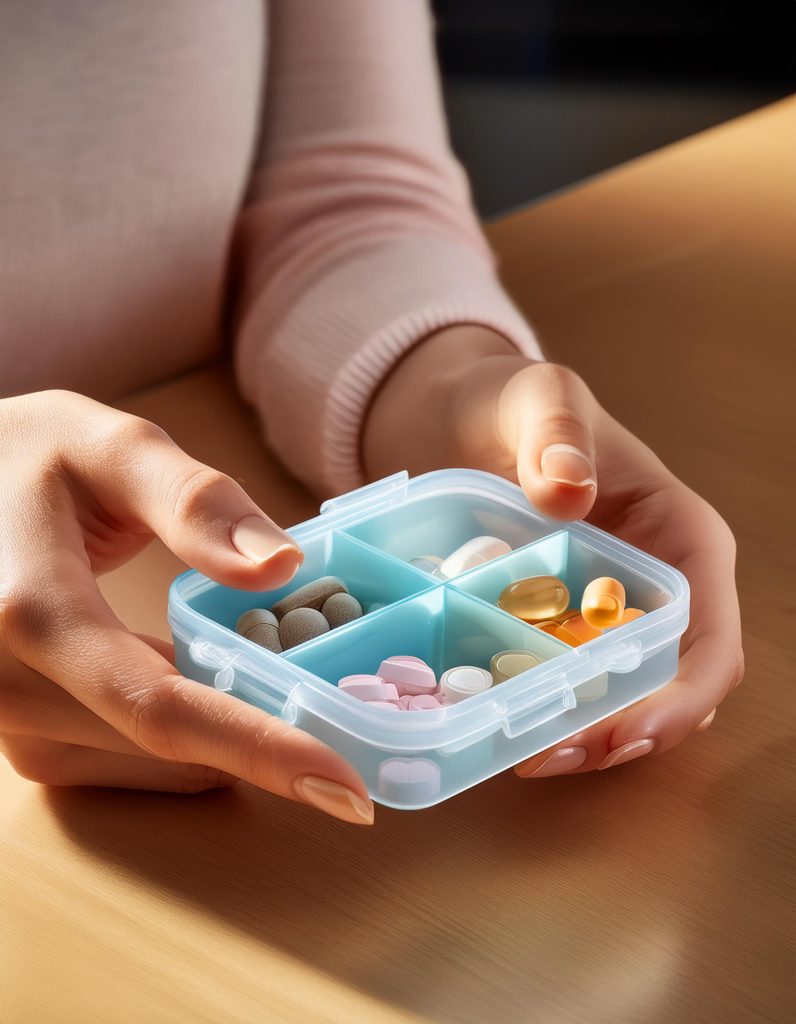Depression
What is Depression?
Depression is a common mental health disorder that affects millions of people worldwide. According to the National Institute of Mental Health. It’s more than just feeling sad or having a bad day.
Clinical depression can interfere with your daily life, impacting your ability to work, sleep, and enjoy life. People with depression often experience various emotional and physical symptoms that can vary in intensity.
Signs and Symptoms of Depression
The symptoms of depression can differ from person to person, but common indicators include:
- Persistent sadness or low mood: Feeling down or hopeless for weeks or months at a time is a hallmark of depression.
- Loss of interest in activities: Things you once enjoyed—like hobbies, socializing, or even eating—may no longer bring you pleasure.
- Fatigue or lack of energy: Feeling depressed often causes a deep sense of tiredness, making it hard to complete even simple tasks.
- Changes in sleep patterns: Some people with depression may find themselves sleeping too much, while others may struggle with insomnia.
- Changes in appetite: Depression can cause either a loss of appetite or overeating, sometimes leading to weight loss or gain.
- Feelings of worthlessness or guilt: Negative self-talk and feelings of guilt or shame are common, even if they’re irrational.
- Difficulty concentrating: Many people with depression find it hard to focus or make decisions, which can impact work or personal life.
- Physical symptoms: Depression doesn’t just affect your mind. It can also lead to aches, pains, headaches, and digestive problems that don’t seem to have a clear physical cause.
- Thoughts of death or suicide: In severe cases, clinical depression can lead to thoughts of self-harm or suicide. If you or someone you know is experiencing these thoughts, it’s essential to seek immediate help from a healthcare professional.
Causes of Depression
There isn’t one single cause of depression, but rather a combination of factors that can contribute to its development. Some of the most common include:
- Genetics: If depression runs in your family, you may be more likely to experience it yourself. Research has shown that certain genetic factors can make a person more susceptible to depression.
- Biochemical imbalances: Clinical depression is often linked to imbalances in neurotransmitters—chemicals in the brain that regulate mood. For example, low levels of serotonin, dopamine, and norepinephrine are associated with depressive symptoms.
- Stressful life events: Significant life changes, such as the loss of a loved one, financial difficulties, or the end of a relationship, can trigger depression. Prolonged stress and unresolved trauma can also increase the risk of developing the condition.
- Medical conditions: Chronic illnesses like diabetes, heart disease, and autoimmune disorders can increase the likelihood of depression, as can certain medications. Thyroid problems and hormonal imbalances can also contribute to depressive symptoms.
- Personality factors: People with low self-esteem or those who are easily overwhelmed by stress may be more prone to depression. Negative thinking patterns and a tendency to ruminate on problems can make feeling depressed more likely.
How Depression Affects Daily Life
Living with depression can feel like an uphill battle. Everyday tasks that once seemed simple—like getting out of bed, showering, or making breakfast—can feel impossible. Many people with clinical depression withdraw from their social circles, feeling isolated even when they’re surrounded by loved ones. Work and school performance may suffer due to a lack of focus, energy, and motivation.
Depression can also have a physical toll. The constant fatigue and stress can weaken the immune system, making you more susceptible to illness. The condition can also strain relationships, as loved ones may struggle to understand what you’re going through, leading to feelings of guilt or frustration.
Common Treatments for Depression
Fortunately, depression is a treatable condition, and there are several approaches to help manage it. Treatment typically involves a combination of therapy, medication, and lifestyle changes.
Depression Treatment Centre in Thailand: What We Offer
The weight of depression can feel profoundly heavy and isolating, but it’s important to remember that it is a highly treatable condition. For those seeking specialised care, a depression treatment facility in Thailand can offer a comprehensive path to recovery.
We combine evidence-based therapies with medication and holistic approaches to help you improve your thinking patterns, understand the underlying causes of your depression, and develop effective coping mechanisms.
Therapy

One of the most effective ways to treat depression is psychotherapy, as it helps you get to the root of your condition. Our depression rehab centre in Thailand offers various evidence-based therapies, including:
- Cognitive Behavioural Therapy (CBT)
CBT is a highly effective and widely utilised therapy for depression. It focuses directly on addressing and challenging negative thought patterns and beliefs that fuel your symptoms. CBT helps you identify these unhelpful thoughts, challenge their validity, and replace them with a more balanced, positive perspective.
- Dialectical Behaviour Therapy (DBT)
DBT focuses on managing intense emotions and improving relationships. It teaches mindfulness, distress tolerance, and emotional regulation. - Interpersonal Therapy (IPT)
IPT connects depression to relationship difficulties. It helps you resolve conflicts, improve communication, and navigate life transitions. By strengthening social connections and interactions, IPT aims to significantly alleviate symptoms and foster a more supportive life. - Psychodynamic Therapy
Psychodynamic therapy explores the unconscious roots of depression. It examines how past experiences and unresolved conflicts influence current emotions.
Medication

Medications can play a vital role in restoring chemical balance and reducing the severity of symptoms. Commonly prescribed antidepressants include:
- Selective Serotonin Reuptake Inhibitors (SSRIs)
These commonly used medications boost serotonin levels, helping to lift your mood and improve overall well-being. - Serotonin Norepinephrine Reuptake Inhibitors (SNRIs)
SNRIs work to increase both serotonin and norepinephrine, which can be helpful when you’re experiencing fatigue or certain types of pain alongside your depression. - Tricyclic Antidepressants (TCAs)
TCAs can be very effective and are sometimes considered when other options haven’t brought enough relief. - Monoamine Oxidase Inhibitors (MAOIs)
These are powerful medications that require careful monitoring and specific dietary considerations, often used when other treatments haven’t been successful.
Lifestyle Changes

Integrating healthy habits can profoundly impact your journey with depression. These powerful lifestyle changes, which complement professional treatments like therapy and medication, include:
- Nutritious diet
Eating healthy can influence your brain chemistry and reduce symptoms of depression. In addition, foods rich in fibre and probiotics can improve gut health and reduce inflammation, both of which are linked to mental health. - Regular exercise
Exercise not only improves energy levels and sleep patterns but also releases endorphins, which have a positive effect on your mood. That’s why our holistic approach to depression and alcohol detox places a strong emphasis on physical activity and its benefits for emotional well-being. - Adequate sleep
Getting enough sleep is a crucial remedy for depression. Quality rest acts as an instant mood booster by enhancing your emotional resilience, regulating vital neurotransmitters, and leaving you feeling well-rested. - Strong social connections
As social beings, we are wired for connection. Cultivating strong social bonds actively reduces feelings of isolation and loneliness, directly boosting self-esteem and your overall sense of well-being.
At our depression treatment facility in Thailand, we adopt a holistic approach that focuses entirely on you. We also deeply incorporate mindfulness and meditation to effectively reduce stressors and anxiety, promoting deep emotional well-being and lasting resilience.
A Holistic Depression Retreat in Chiang Mai
We understand the debilitating impact of depression. Whether it’s persistent feelings of hopelessness, all-consuming sadness, or a complete loss of joy in activities you once loved, we’re here to support you.
Our clinic team will listen compassionately and offer you guidance, journeying through each step, until you regain your confidence.
Here in Thailand, our depression treatments embraces a holistic philosophy. We recognise that true healing extends beyond just managing symptoms; it means nurturing your mind, body, and spirit as one.
We aim to equip you with the necessary tools for lasting emotional well-being. Your healing journey is personal, and we encourage you to take an active role in your recovery. Get the help you deserve at one of the best rehab centres in Thailand today.
When to Seek Help
If you’ve been feeling depressed persistently—sad, hopeless, or overwhelmed—for more than two weeks, it’s important to seek help. Depression is not something you need to handle alone. A mental health professional can work with you to develop a treatment plan that fits your specific needs and helps you begin to feel better.
